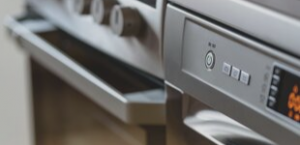The correct performance of refrigeration equipment is determined by properly selected thermal insulation. The key task of manufacturers of refrigerators, refrigerated counters, industrial cold stores or delivery trucks is to limit the heat flow. For this reason, this parameter is an extremely important issue for producers of insulating materials.

In addition, the continuous tightening of legal regulations, especially regarding environmental requirements, increases the demand for more and more modern and energy-saving devices. The increase in the demand for refrigeration equipment is also due to the development of meat, dairy, and fruit-vegetable industries. In addition to the food industry, agriculture is also a key utiliser of the refrigeration sector.
Requirements for thermal insulation in refrigeration and air conditioning
Properly selected insulation is a key factor affecting the economy and reliability of refrigeration equipment. The most important parameters of insulation materials include their thickness, type and manufacturing technology. Usually, these materials are heterogeneous, consisting of more than one component, and their design significantly affects the thermal conductivity. Insulation materials are used depending on the specific application, as they are strongly related to the problem of energy saving and protection against temperature.
When selecting the type of insulation and determining its thickness, three main factors are taken into account: thermal, technological and factors related to the non-thermal physical properties of the insulation material. The thermal requirements include mainly the temperature range in which the insulation is to be used, the stability of its thermal properties over time, the ease of achieving a vacuum, as well as the most important parameter – thermal efficiency. When designing cooling systems, environmental issues are also important, i.e. harm to the environment and people. An important group of products used in the refrigeration industry are so-called refrigerants. They should have good physical and thermodynamic parameters, high chemical stability, and be inexpensive, efficient and easy to remove at the end of their shelf life. Natural refrigerants, e.g. ammonia, propane or butane, are increasingly used. They can successfully replace previously used synthetic agents, e.g. Freon R22, which is extremely harmful to the environment.
Thermal insulation of cold rooms
The construction of the insulated part of refrigerated rooms is a very complicated issue. They must meet a number of requirements, such as inhibition of heat transfer through walls, protection against the possibility of moisture condensation, they should also ensure the continuity of the layer in the entire volume of the barrier. It is also crucial that the materials used in refrigeration insulations do not absorb and transmit odours to stored goods. It should also be taken into account that the temperature and humidity prevailing in cold stores favour the development of microorganisms, and in particular molds which have a destructive effect on insulation materials. Materials used in refrigeration insulations must also not contain phenol, cresol, carbolic acid and naphthalene. The fragrance coming from these substances directly interacts with stored food products and makes them unfit for consumption.
The restrictive requirements for the thermal insulation of cold rooms provide great opportunities for manufacturers of polyurethane systems, which are now considered to be one of the best thermal insulation materials available on the market.
The PCC Group’s offer for the refrigeration industry
The products offered by the PCC Group for the refrigeration industry include, among others, two-component polyurethane systems used for the production of rigid foam with self-extinguishing properties. Such products include Ekoprodur 2232 W and Ekoprodur PM 2233 / J. They are used as insulation for cold stores, refrigerators and freezers. Both products have a Hygienic Certificate of the National Institute of Hygiene (PZH), which confirms that they do not have a negative impact on health and the natural environment.
Another product group dedicated to the production of polyurethane systems is Rokopol® series. These are general-purpose polyether polyols used in the production of polyurethane foam (PUR) with closed-cell structure. Rokopol® GS364 and Rokopol® GS484 have very good mechanical and thermal insulation properties, ensuring the high quality of the final product. They are mainly used for the production of foams for thermal insulation of devices such as fridges and freezers. The portfolio of the PCC Group also includes the Roflam series, flame retardants commonly used in polyurethane processing as thermal insulation of industrial cold stores. Roflam’s products are also well-suited for insulation materials such as: flood, block, layered and rigid foams, as well as sandwich panels.
The PCC Group also offers concentrated fluids with low pour point, that can be used in refrigeration, air conditioning, heating, solar installations and heat pumps. Roksol CCE Koncentrat and Roksol CPP Koncentrat are ideally suited as coolants working in closed systems.
In addition to the products directly and indirectly used for the insulation of cold rooms, the PCC Group’s portfolio also includes products dedicated to the insulation of boilers, water heaters, heat exchangers and tanks. Ekoprodur 3050W2 and Ekoprodur WH1230Z are two-component systems designed to produce polyurethane foam. They produce an insulating layer with stable parameters and excellent adhesion to various materials. All products of the Ekoprodur series have a Hygienic Certificate of the National Institute of Hygiene confirming the safety of their use.